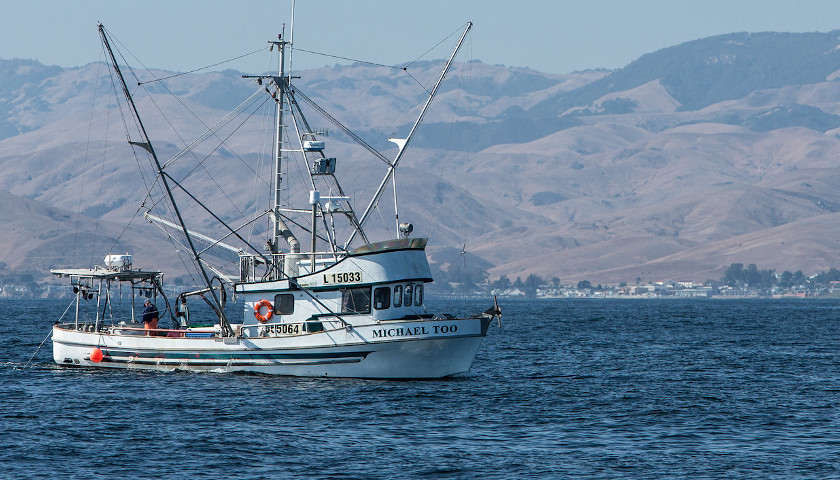by Scott McClallen
A tie-barred, three-bill package passed the House Thursday, which Great Lakes commercial fishers say would sink at least six of their 13 full-time businesses.
House bills 4567, 4568 and 4569 would ban commercial fishing of yellow perch, walleye and lake trout, reserving those fish for recreational fishers. The bills would also increase penalties on fishers for catching illegal game, as well as regulate their gear.
Bill sponsor Rep. Jim Lilly, R-Park Township, previously told The Center Square he wants to raise commercial fishing license fees because Michigan spends millions of dollars to regulate that market but only reaps a fraction of that in revenue.
“From my perspective, private anglers are paying the vast majority of the cost related to regulations in this market,” Lilly said. “They don’t necessarily get all of the benefits.”
Lakon Williams’s family has run the Bay Port Fish Company since 1978.
Williams told The Center Square that she doesn’t mind increased fees, but that the breed catch restrictions would force about half of the Bay fisheries out of business because yellow perch accounts for about 50 percent of their summer revenue.
She said the Michigan Department of Natural Resources (MDNR) chose to support sport fishers who make up 11 percent of fishing in Michigan.
“We fish for the 89 percent of Michigan that can’t fish themselves,” Williams said.
Williams said the MDNR is trying to push them out of business through heightened regulations.
One regulation would increase mesh-net gaps from 3.5 inches to 4.5 inches, which Williams said would render their 50 trap nets, which cost them more than $200,000, worthless.
The lifting requirement would force fishers to pull every net within 10 days and release the fish they aren’t targeting, regardless of weather or safety, Williams said, adding that she fears fishers may risk lives to follow the law.
Williams said if the bills passed the Senate and were signed into law, Michiganders will buy Great Lakes fish from Canada or other states that are less fresh and more expensive.
Sport and commercial fishers have shared fish for hundreds of years, she said.
“It’s a shame. While they feed their families, we feed millions of families,” Williams said. “And they don’t care about that.”
Williams said that Great Lakes fishers harvested about 2.5 million pounds of white fish in 2019, which is sold to restaurants, universities, food distributors and customers.
Amber Mae Petersen, the owner/operator of the Fish Monger’s Wife in Muskegon and the secretary-treasurer of Michigan’s Fish Producers Association, told The Center Square the bills strong-arm family-owned commercial fishing companies.
“Commercial fishermen provide to our local communities,” Petersen said. “That is our job. We go out early in the morning, and we work our tails off to sell fish and accommodate people who can’t and don’t have access to the Great Lakes.”
Her husband helps operate Petersen’s Fisheries in Muskegon.
State Rep. Pauline Wendzel, R-Watervliet, said she sponsored one of the bills to protect sport fishing’s economic output of more than $3.7 billion, which supports nearly 28,000 jobs across the state.
“Michigan has some of the most precious natural resources in the world, and it’s important that we have modern regulations in place to protect our resources and ensure that people continue coming into our state to spend tourism dollars that support local communities,” Wendzel said in a statement.
Her bill is backed by the Michigan Steelhead & Salmon Fishermen’s Association and the Michigan United Conservation Club (MUCC).
MUCC Executive Director Amy Trotter celebrated yesterday’s vote in a press release.
“Modernizing decades-old statute is an important first step in protecting game fish from commercial interests,” Trotter said. “Hunter and angler dollars fund the bulk of fisheries management in our state, and our members have demonstrated they won’t stand for subsiding the commercial industry.”
– – –
Scott McClallen is a staff writer covering Michigan and Minnesota for The Center Square. A graduate of Hillsdale College, his work has appeared on Forbes.com and FEE.org. Previously, he worked as a financial analyst at Pepsi.
Photo “Commercial Fixing License” by Mike Baird. CC BY 2.0.





